Is Creatine Safe for Teens? Pros/Cons Explained
Author:
Unlock your full potential by engaging with our experts and community! Have questions about your fitness journey or looking for expert advice on weightlifting techniques? Don’t hesitate — leave a comment below and Jacek Szymanowski will provide a personalized answer and insights to help you reach your goals.
Torokhtiy is reader-supported. Some links are affiliate links, and we may earn a commission at no extra cost to you. See our disclosure page for details.
Creatine is one of the most widely studied ergogenic aids in the world, with research showing beneficial effects on high-intensity exercise performance. Whilst thousands of studies have shown its safety and efficacy, most are done on adults making the effects of creatine for teens less well-known.
So, is creatine safe for teens? How old should you be to take creatine? We discuss the answers to these questions below.
How to adjust a treadmill belt? The first thing you need to do is to find the rear roller bolts (at the back of your treadmill). You’ll need an Allen wrench to tighten or loosen them. After you’re done, make sure to test it before you actually use it.
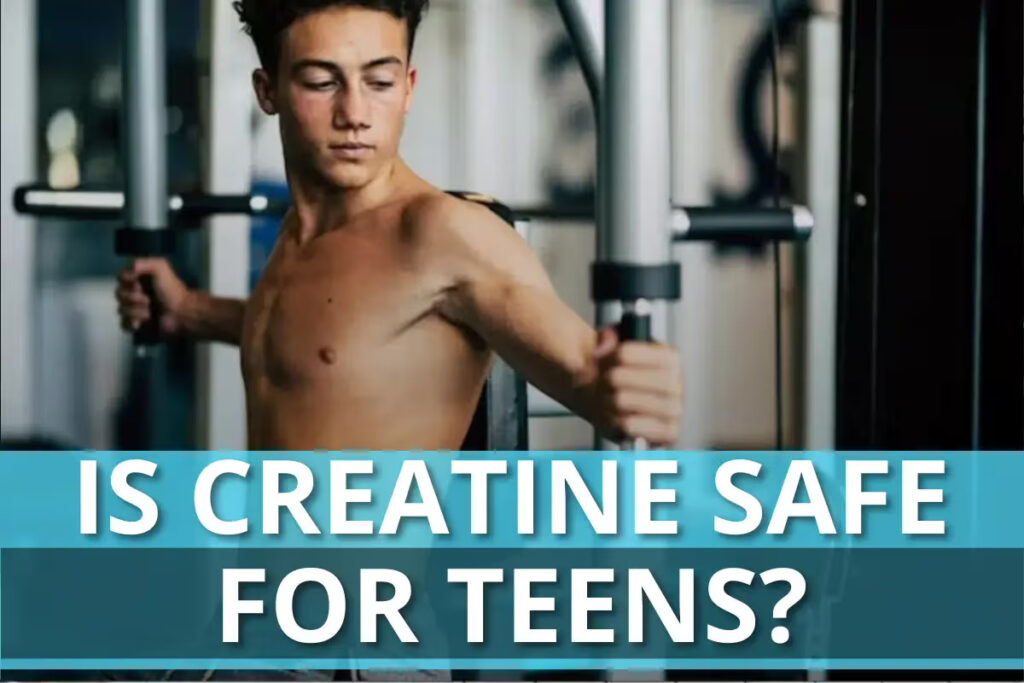
Is Creatine Safe For Teens?
Creatine is a naturally occurring amino acid that is synthesized in your body, more specifically your liver and kidneys. It’s also found in certain foods such as red meat, eggs, milk, and seafood.
Whilst your body can produce around 1-2 grams a day, it isn’t enough to fully saturate your muscle stores so there is some room for supplementation. Once ingested, the creatine is stored as creatine and phosphocreatine in your skeletal muscle. This is then used to power the ATP-PCr system, the body’s main energy source during high-intensity, supra-maximal exercise.
Since the 1990s, creatine has been one of the most widely researched ergogenic aids in the world, with the vast majority of studies showing beneficial effects on markers of performance with no adverse reactions. Side effects such as liver and kidney issues, cramping, dehydration, and stomach pain are seldom reported in the literature even with long-term usage. The only side effect consistently reported throughout the literature is weight gain as a result of the increased muscle water retention – however this is actually a good thing, not bad.
As with any supplement, the correct dosing protocol should be used to ensure safe consumption within the tested limits. Longer-term studies giving participants creatine at 0.3g/kg/day – 0.8g/kg/day have consistently shown the multiple health benefits of creatine alongside an excellent safety profile.
But, is creatine bad for teens? Whilst the majority of studies have been performed on adults, enough safety evidence exists to warrant the use of creatine for teens who perform regular high-intensity sports or exercise. Some even suggest that not supplementing creating might increase the risk of injuries in athletes. With this, can teenagers take creatine? Creatine is safe for teenagers to take and should be considered as a supplement under the following conditions:
- You already eat a healthy, balanced diet that’s optimized to improve sports performance. You have all the nutrition basics covered and want to supplement creatine to add slight improvements to your performance, not as a way to replace the fundamentals.
- You play competitive sports and/ or perform high-intensity exercise regularly under the supervision of experienced professionals and coaches.

What Are The Benefits Of Taking Creatine For Teens?
Alongside caffeine, creatine is one of the most studied and well-proven ergogenic aids in the world. Here are just some of the benefits of supplementation as a teenager:
1. Improved Energy Production and Muscular Strength
Creatine supplementation increases your body’s phosphocreatine stores which helps to form adenosine triphosphate (ATP). During high-intensity exercise, ATP is broken down to provide energy which then allows you to perform at your maximum intensity for a longer period, improving short-duration, high-intensity exercise performance.
As a teen, most of the day is often spent being active, playing with friends, or competing in sports. Therefore, the increases in energy and muscle strength provided with creatine may be especially warranted in certain teen populations.
2. Better Recovery
When you perform high-intensity exercise, you create micro-tears in your muscle fibers that then heal as you recover. This recovery process allows the muscle to build back stronger as it better adapts for the next exercise bout.
Creatine supplementation may reduce the post-exercise inflammation response, therefore reducing the amount of recovery needed before the next exercise bout. Research into this potential beneficial effect of creatine is still developing.
As a teenager, it’s not uncommon to perform multiple activities and sports within a day. This means that taking creatine for better recovery may be warranted.
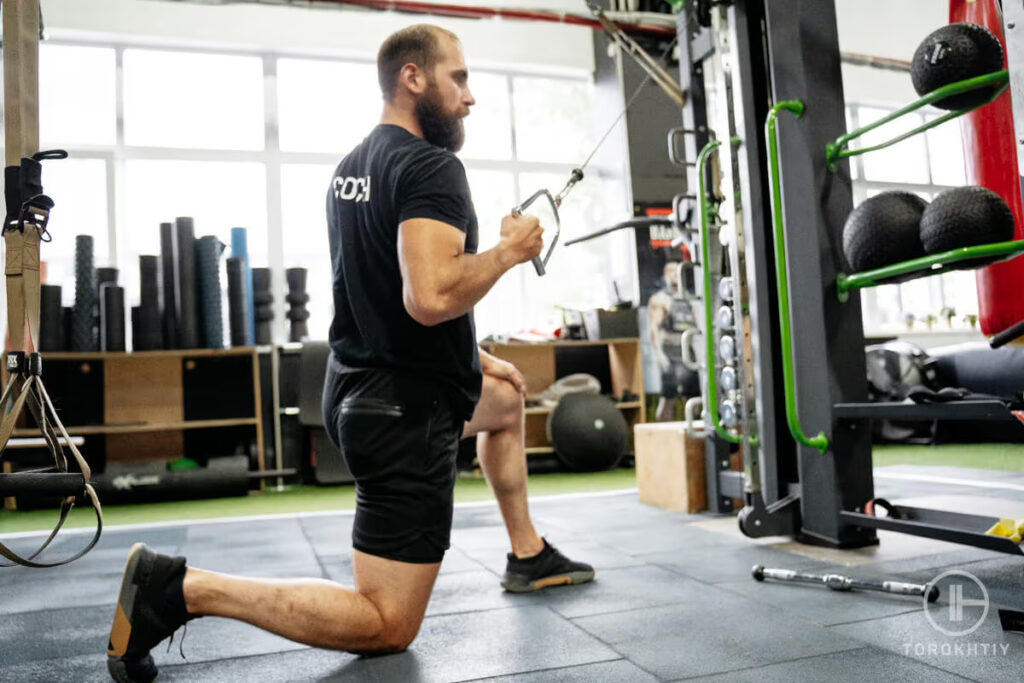
3. Improved Body Composition
Creatine is the most effective legal supplement in the world for adding muscle mass. Studies have shown increases in lean body mass and muscle size after as little as 5-7 days of supplementation.
Whilst the initial rise in body weight is mainly due to increases in muscle water content, longer-term effects include improvements in key biological pathways related to muscle growth.
4. Better Cognitive Function
Creatine supplementation may have some benefits for brain health and function, but more research is needed to be sure. If you’re considering taking creatine, remember that it’s primarily known for improving muscle mass and strength, but the overall positives probably outweigh any potential downsides even if the “brain thing” will turn out to be untrue 🙂.
Whilst the positive effects on cognition shown in research may be more pronounced in older individuals, teenagers who have a heavy study schedule, suffer from sleep deprivation, and experience bouts of anxiety may benefit from creatine supplementation.
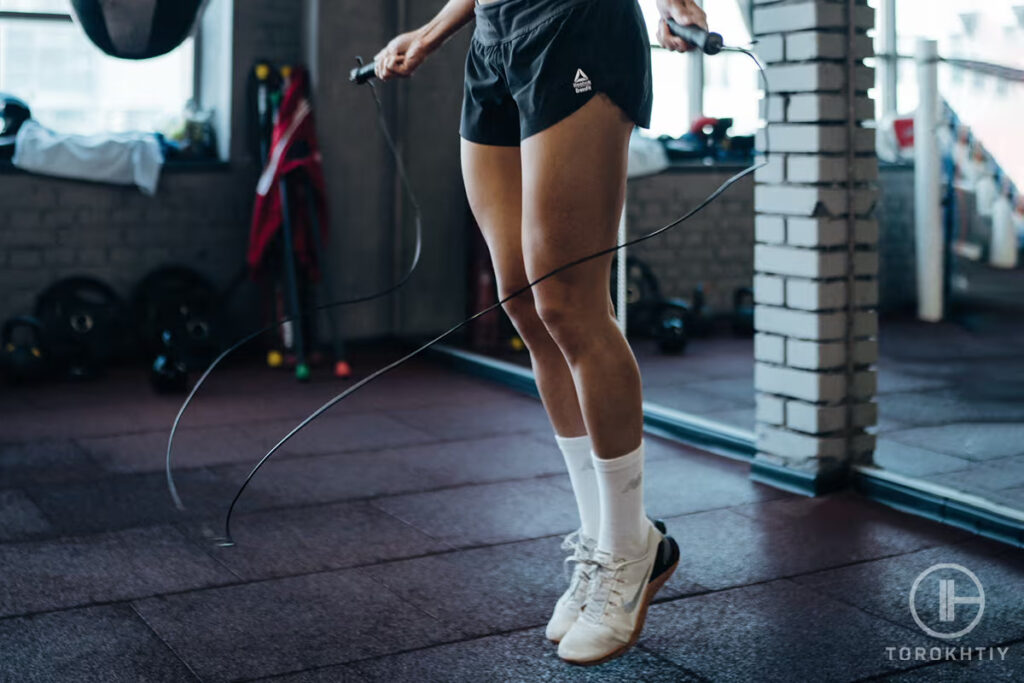
How to Minimize Potential Risks When Using Creatine?
Now that you know the benefits of creatine supplementation, let’s discuss the possible risks that can be involved.
Whilst the safety profile of creatine is well-proven throughout thousands of studies, there are some situations where you may need to take it with caution or avoid supplementation altogether. Here’s how to minimize the potential risks:
1. Consult a Doctor First
Before deciding to take a new supplement or make a drastic lifestyle change, it’s always best to consult a doctor first.
Whilst most short and long-term studies confirm that creatine has no detrimental effects on kidney and liver function, this might not be the case for people with underlying issues. With a lack of research concerning the effects of creatine supplementation in teens with liver and kidney problems, it’s best to exercise caution before starting one.
Consult your doctor before going through the relevant pros and cons of supplementation. Decide if it’s worth it for your individual situation and get signed off by the doctor first.
2. Choose Creatine Certified by a Recognized Third-Party
When a supplement has been certified by a recognized third party, it means it’s been professionally tested for purity. This ensures no heavy metals and prohibited substances are present that may cause harm to your health or prohibit you from competition when considering creatine for teenage athletes.
If the creatine has been third-party tested, the company’s certification will be clearly shown on the label. Look for high-quality organizations such as Informed Sport, Informed Choice, and NSF-certified for sport.

3. Don’t Exceed the Recommended Dosage
When considering the dosing protocol, it’s always best to stick to the recommended creatine dosage that’s been well-tested throughout the literature. Studies use similar dosing protocols for good reason. They allow you to fully saturate your creatine stores whilst being well-tested for any possible adverse side effects.
As a teen athlete, you have two dosing options:
- Start with a loading phase (2×10, 4×5 gram doses) split evenly throughout the day for 5-7 days. Follow up with a daily maintenance dose of 3-5 grams or 0.3 – 0.8g/kg/day.
- Our recommendation – Start with the maintenance dose of 3-5 grams (0.3-0.8g/kg/day) and continue daily.
Both protocols fully saturate your muscle’s creatine stores, with the loading protocol doing it in a quicker period. Choose the correct protocol for your individual situation and dose accordingly.
creatine dosage calculator
Loading Phase:
Maintenance Phase:
4. Choose the Correct Creatine Form
Multiple creatine forms exist, with manufacturers making claims such as better bioavailability and more cost-effectiveness. Creatine monohydrate is the most effective and safest form of creatine. It’s also the most heavily used form throughout the majority of scientific research.
For these reasons, we suggest going with creatine monohydrate as a proven form of creatine.

Why Do Manufacturers Warn That Teens Should Not Consume Creatine?
In short, they are practicing extreme caution. Creatine isn’t on the banned substance list and it is naturally produced in the body. No legal restrictions exist for selling creatine and it can be widely purchased from most health stores.
Despite this, many manufacturers use labeling that warns against the use of creatine in people under 18. Whilst there are always small risks involved in taking a supplement at any age, manufacturers mainly do this to protect themselves against legal liability and not as a result of the creatine composition.
Conversely, the use of creatine as a young athlete heavily involved in competitive sports and exercise may reduce the risk of injury when taken under the correct supervision.
Our Recommended Creatine – Promix Micronized Monohydrate
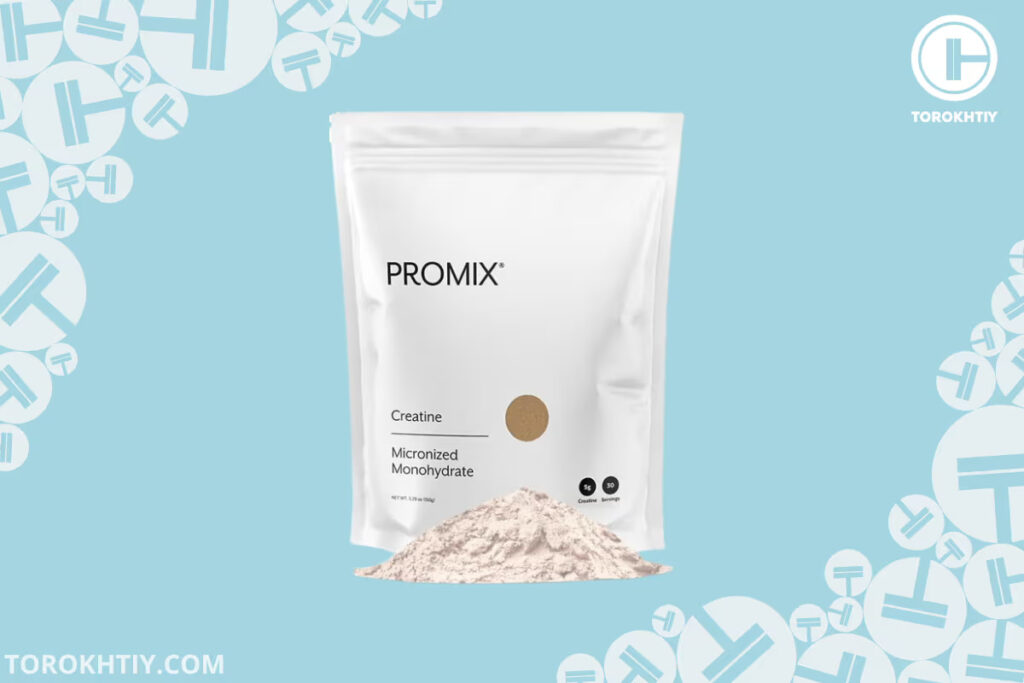
The Promix Nutrition Micronized Monohydrate is a high-quality non-GMO creatine powder that supports increases in muscle size, strength, and power.
Promix operates with excellent integrity, independently testing each ingredient for heavy metals and impurities. Alongside this, it’s free of soy, gluten, refined sugar, artificial sweeteners, stevia, and gums.
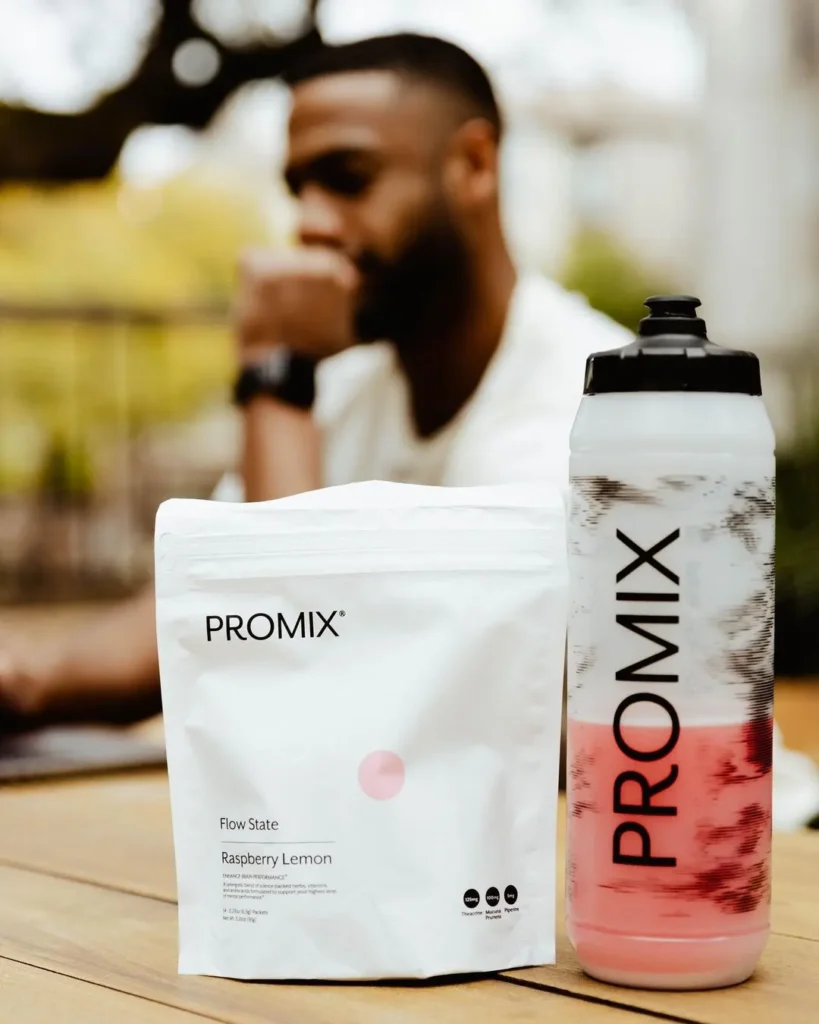
As a super clean creatine powder, it’s the perfect choice for youth athletes who want to start supplementing.
FAQ
Would Anything Happen If I Take Creatine When I’m Under 18?
Nothing different would happen when taking creatine under 18 compared to as an adult. The same dosing strategy should be used and the same risks are present if creatine isn’t used correctly. Consult a doctor first before taking it just to be sure.
Can A 14 Year Old Take Creatine?
The best age to start taking creatine depends on what you are using it for and why. If you perform a sport requiring short bursts of power or regularly perform resistance training then the use of creatine at 16 can be beneficial if you’ve consulted a doctor first.
If you are competing at a young age, make sure to consult your doctor and follow the fundamental nutrition basics before looking to add supplements into your routine.
Does Creatine Stunt Growth At 15?
No evidence currently exists showing growth stunting effects in teens, meaning it’s safe to take at a younger age. Conversely, research actually shows there might be an opposite effect, with creatine improving height in children who had a higher daily creatine intake.
How Old Do You Have To Be To Buy Creatine?
Currently, there is no creatine age limit that is legally enforced. Some manufacturers warn against creatine consumption under 18 years of age but this is mainly to protect themselves from legal liability.
Conclusion
Creatine is one of the most widely-studied ergogenic aids, with thousands of research studies showing beneficial effects on energy levels, muscular strength, and sports performance. Creatine has an excellent safety profile, with no adverse side effects reported throughout the majority of the literature. So, should teens take creatine?
Enough evidence exists regarding the safety and efficacy of creatine use to warrant supplementation for teens in specific situations. To reduce the possible risks, make sure to consult a doctor before taking it. Also, go with third-party tested products and use the correct dosing protocol. Do you take creatine? Do you think it’s safe to take as a teenager? Talk to me more about it below!
Also read:
- Is Creatine Good for Weight Loss
- Can You Take Creatine With Pre Workout
- Creatine Hcl vs Monohydrate
- Will Creatine Make Me Bigger
- How Much Water to Drink With Creatine
- How Long Does Creatine Last During a Workout
- Best Time to Take Creatine
- When Does Creatine Start Working
- How Much Creatine Is Too Much
- Does Creatine Water Retention
References:
- Richard B Kreider, “Effects of creatine supplementation on performance and training adaptations” National Library of Medicine, no. 244(1-2):89-94.
- Thomas W Buford, Richard B Kreider, Jeffrey R Stout, Mike Greenwood, Bill Campbell, Marie Spano, Tim Ziegenfuss, Hector Lopez, Jamie Landis, Jose Antonio, “International Society of Sports Nutrition position stand: creatine supplementation and exercise” National Library of Medicine, no. 4: 6.
- Alex S. Ribeiro, Ademar Avelar, Witalo Kassiano, João Pedro Nunes, Brad J. Schoenfeld, Andreo F. Aguiar, Michele C.C. Trindade, Analiza M. Silva, Luís B. Sardinha, Edilson S. Cyrino, “Creatine Supplementation Does Not Influence the Ratio Between Intracellular Water and Skeletal Muscle Mass in Resistance-Trained Men” nternational Journal of Sport Nutrition and Exercise Metabolism, (2020).
- Richard B. Kreider,corresponding author1 Douglas S. Kalman, Jose Antonio, Tim N. Ziegenfuss, Robert Wildman, Rick Collins, Darren G. Candow, Susan M. Kleiner, Anthony L. Almada, Hector L. Lopez, “International Society of Sports Nutrition position stand: safety and efficacy of creatine supplementation in exercise, sport, and medicine” National Library of Medicine, 2017; 14: 18.
- Richard B Kreider, Charles Melton, Christopher J Rasmussen, Michael Greenwood, Stacy Lancaster, Edward C Cantler, Pervis Milnor, Anthony L Almada, “Long-term creatine supplementation does not significantly affect clinical markers of health in athletes” National Library of Medicine, 244(1-2):95-104.
- Nanci S. Guest, Trisha A. VanDusseldorp, Michael T. Nelson, Jozo Grgic, Brad J. Schoenfeld, Nathaniel D. M. Jenkins, Shawn M. Arent, Jose Antonio, Jeffrey R. Stout, Eric T. Trexler, Abbie E. Smith-Ryan, Erica R. Goldstein, Douglas S. Kalman & Bill I. Campbell, “International society of sports nutrition position stand: caffeine and exercise performance” Journal of the International Society of Sports Nutrition, no. 18 (2021)
- P D Balsom, K Söderlund, B Sjödin, B Ekblom, “Skeletal muscle metabolism during short duration high-intensity exercise: influence of creatine supplementation” National Library of Medicine, 154(3):303-10.
- Dean M. Cordingley, Stephen M. Cornish, Darren G. Candow, “Anti-Inflammatory and Anti-Catabolic Effects of Creatine Supplementation: A Brief Review” National Library of Medicine, 14(3): 544.
- Steven L Nissen, Rick L Sharp, “Effect of dietary supplements on lean mass and strength gains with resistance exercise: a meta-analysis” National Library of Medicine, 94(2):651-9.
- Darren G Candow, Scott C Forbes, Sergej M Ostojic, Konstantinos Prokopidis, Matt S Stock, Kylie K Harmon, Paul Faulkner, “Heads Up” for Creatine Supplementation and its Potential Applications for Brain Health and Function” National Library of Medicine, 10.1007/s40279-023-01870-9.
- Jose Antonio, Darren G. Candow, Scott C. Forbes, Bruno Gualano, Andrew R. Jagim, Richard B. Kreider, Eric S. Rawson, Abbie E. Smith-Ryan, Trisha A. VanDusseldorp, Darryn S. Willoughby & Tim N. Ziegenfuss, “Common questions and misconceptions about creatine supplementation: what does the scientific evidence really show?” nternational Journal of Sport Nutrition and Exercise Metabolism, (2021).
- “Science & Testing” Informed Sport, http://surl.li/ldrmw (accessed 2022).
- “About Informed Choice” Informed Choice, http://surl.li/ldrnd (accessed 2022).
- “Supplement and Vitamin Certification” NSF-certified for sport, http://surl.li/ldrnf (accessed 2022).
- Fazio, Carly Elder, Craig Harris, Margaret M, “Efficacy of Alternative Forms of Creatine Supplementation on Improving Performance and Body Composition in Healthy Subjects: A Systematic Review” National Strength and Conditioning Association, no. 2 (2022): 25-38.
- Darinka Korovljev, Valdemar Stajer, Sergej M Ostojic, “Relationship between Dietary Creatine and Growth Indicators in Children and Adolescents Aged 2-19 Years: A Cross-Sectional Study” National Library of Medicine, 23;13(3):1027
Why Trust Us?
With over 20 years in Olympic weightlifting, strength training, nutrition coaching, and general fitness our team does its best to provide the audience with ultimate support and meet the needs and requirements of advanced athletes and professional lifters, as well as people who strive to open new opportunities and develop their physical capabilities with us.
By trusting the recommendations of our certified experts in coaching, nutrition, and sports training programming, as well as scientific consultants, and physiotherapists, we provide you with thorough, well-considered, and scientifically proven content. All the information given in the articles concerning workout programming, separate exercises, and athletic performance, in general, is based on verified data.
The product testing process is described in more detail here.
Author: Jacek Szymanowski
Certified Nutritionist,
M.Sc.Eng. Biotechnology
Performance Architect,
Strength and Conditioning Specialist
With over 30 years of fighting experience, specialization in nutrition coaching for athletes, and expertise in metabolic health and dietary strategies, Jacek offers a comprehensive approach to optimizing your performance and well-being. Backed by a Master of Science degree in Biotechnology, Jacek remains at the forefront of scientific advancements, ensuring that his coaching is always evidence-based and up-to-date.



Still have questions after reading our article? Unlock your full potential by engaging with our experts and community! Don’t hesitate — leave a comment below and Jacek Szymanowski will provide a personalized answer and insights to help you reach your goals.